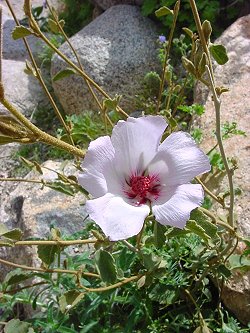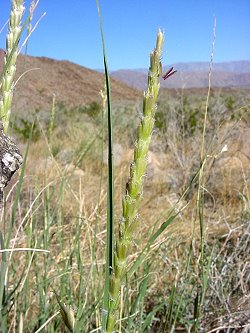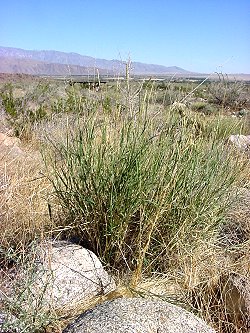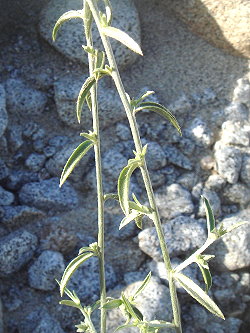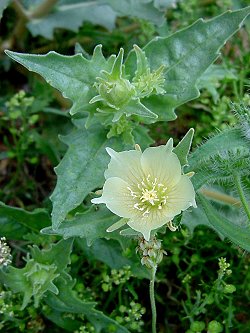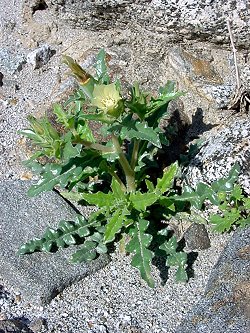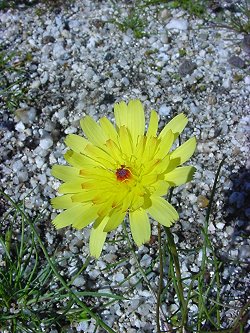| BORREGO PALM CANYON, ANZA-BORREGO DESERT STATE PARK 2005 PAGE ONE |
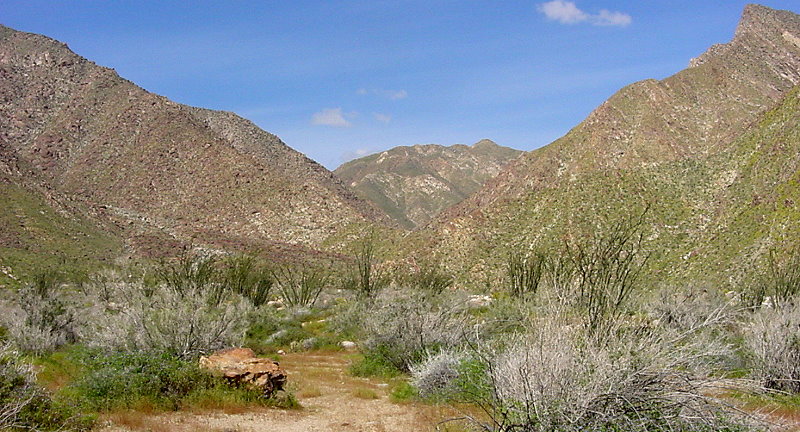 |
This is a photo gallery based on four visits to Borrego Palm Canyon in February, March, November and December 2005. The following is borrowed from Tom Chester’s Flora of Borrego Palm Canyon which is online at http://tchester.org/sd/plants/floras/borrego_palm_canyon.html. “Borrego Palm Canyon is the most famous and most visited area in Anza-Borrego Desert State Park. It was originally called just Palm Canyon, and was well named since it has the third largest collection of palms in California, after Palm Canyon and Murray Canyon in Palm Springs. Randall Henderson, editor and publisher of Desert Magazine, counted 778 palm trees in the winter of 1940. The Canyon was eventually renamed Borrego Palm Canyon to prevent confusion with Palm Canyon in Palm Springs. The Canyon was the first piece of property in what was then called Borrego Palms Desert State Park, one of the first State Parks in 1933. The Park Headquarters was originally located at the mouth of the Canyon until around 1957. The 1.4 mile Nature Trail leading to the first palm grove was built in 1933 with hand tools by the first park rangers. The Alternate Trail was built in the late 1960s by the La Cima honor camp inmates, and was known as the La Cima trail briefly.” (Source for the historical information: Anza-Borrego A to Z, Diana Lindsay, 2001.)” Tom also notes that “the Canyon probably has the highest floristic diversity of any area in the Borrego Desert, from the montane forest in its upper reaches to the desert vegetation at its mouth.” The trail that most people are content to travel is a loop of approximately three miles in length and about 800' in elevation gain, however a longer option is available to go farther up canyon. The oasis of California's only native palm is usually well-watered by underground springs and a year-round stream, and the canyon is home to bighorn sheep and over 80 species of migratory birds, while in the spring ocotillos, barrel cacti, brittlebushes, chuparosas, indigo bushes and many species of wildflowers color the surroundings in an artist's palette. Tom also mentioned to me in an email that 2005 was the best blooming year he had experienced in 20 years of botanizing in the desert. As always, an asterisk next to the common name indicates a non-native species. UPDATE: On January 18, 2020, an arsonist set fire to the main grove of California palms and approximately 60 mature palms were burned. Ecologists say that the grove will regrow, as it did after it burned in May of 1970. |
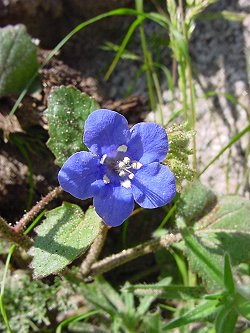 |
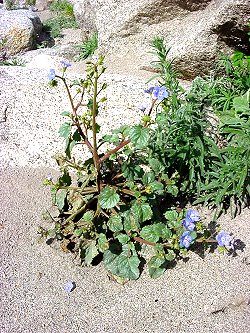 |
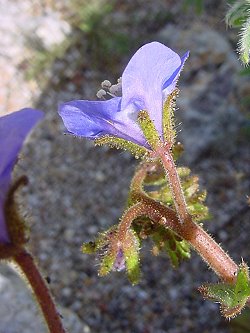 |
||
| Desert bluebells Phacelia campanularia var. campanularia Hydrophyllaceae |
||||
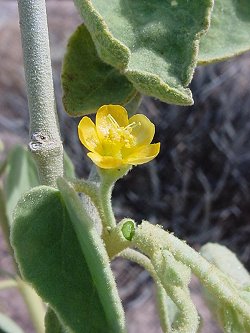 |
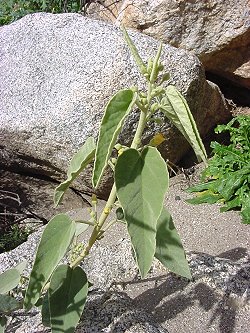 |
|
Newberry's velvet-mallow Horsfordia newberryi Malvaceae [Named for Frederick Hinsdale Horsford, 1855-1923, and John Strong Newberry, 1822-1892] |
||
|
|
|
||||
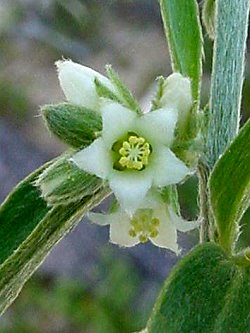 |
|
|
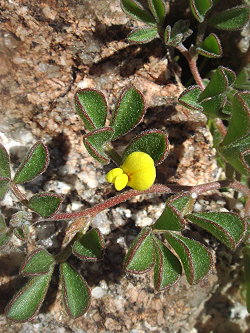 |
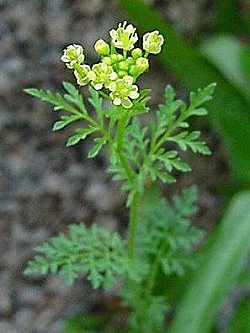 |
|
| Strigose lotus Acmispon strigosus Fabaceae |
Western tansy mustard Descurainia pinnata Brassicaceae [Named for François Descourain, 1658-1740] |
|
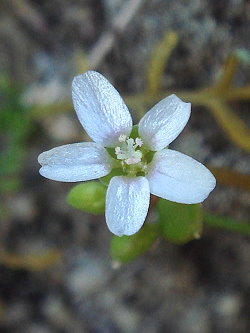 |
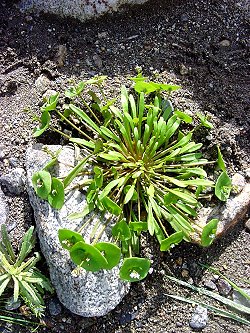 |
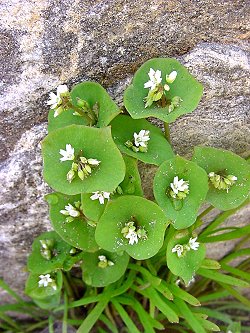 |
||
| Utah or small-flowered miner's lettuce Claytonia parviflora ssp. utahensis Montiaceae [Named for John Clayton, 1694-1773] |
||||
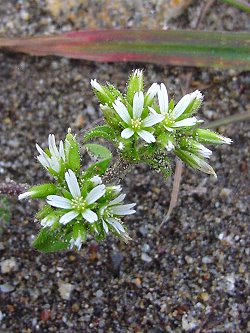 |
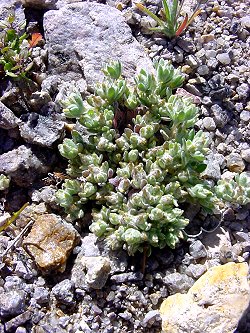 |
|
| Mouse-ear chickweed * Cerastium glomeratum Caryophyllaceae |
Dwarf filago Logfia depressa Asteraceae |
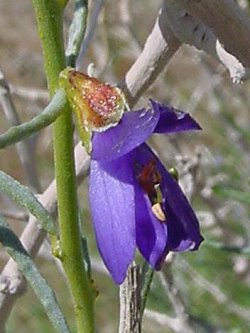 |
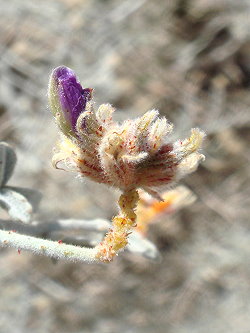 |
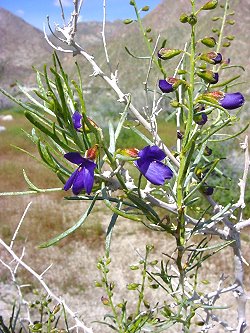 |
||
| Schott's indigo bush Psorothamnus schottii Fabaceae [Named for Arthur Carl Victor Schott, 1814-1875] |
||||
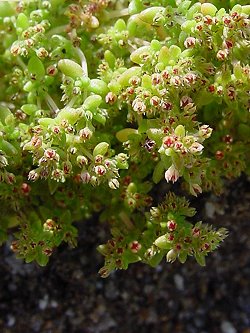 |
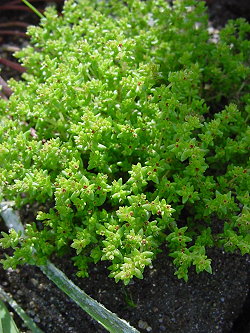 |
|
Common pygmyweed Crassula connata Crassulaceae |
||
| PHOTO GALLERIES INDEX |
CALFLORA.NET | PAGE TWO OF FIVE |
| CALIFORNIA PLANT NAMES: LATIN AND GREEK MEANINGS AND DERIVATIONS | ||
| VIRGINIA PLANT NAMES: LATIN AND GREEK MEANINGS AND DERIVATIONS | ||
Copyright @ 2022 by Michael L. Charters
The photographs contained on these pages may not be reproduced without the express written permission of the author.
Comments and/or questions may be addressed to mmlcharters[at]gmail.com.
